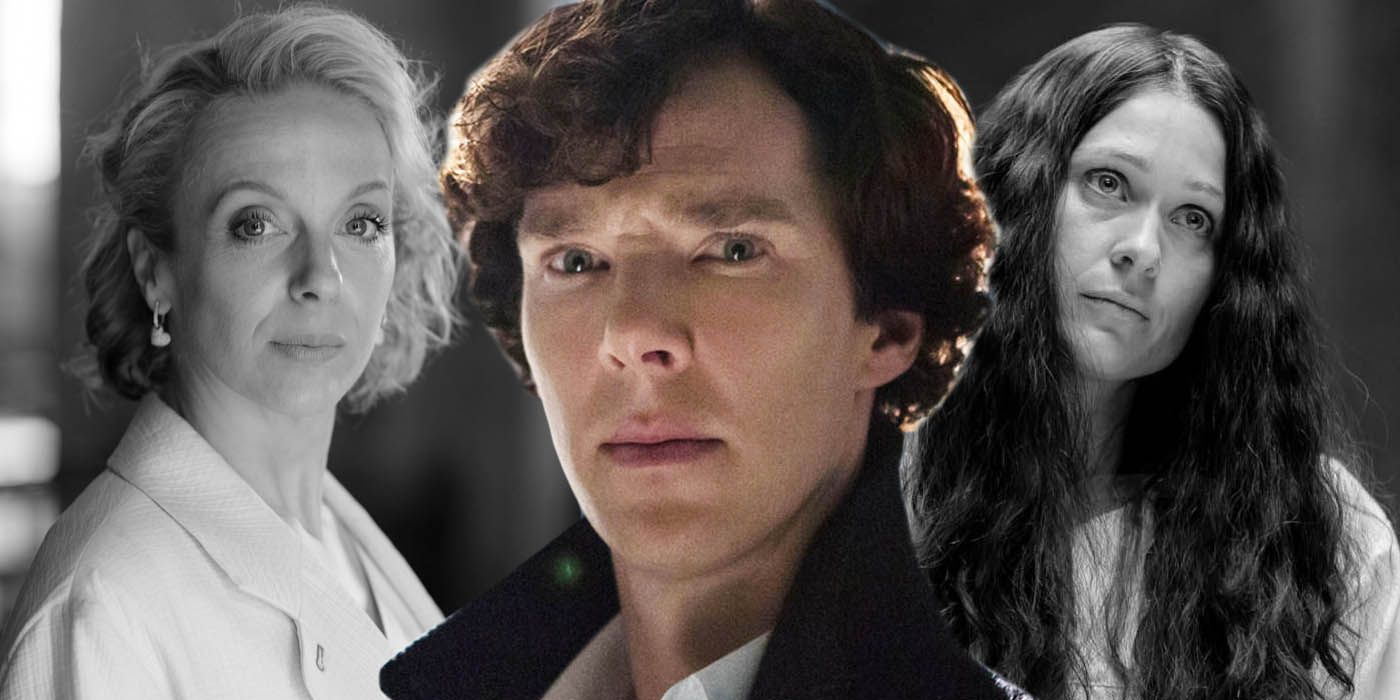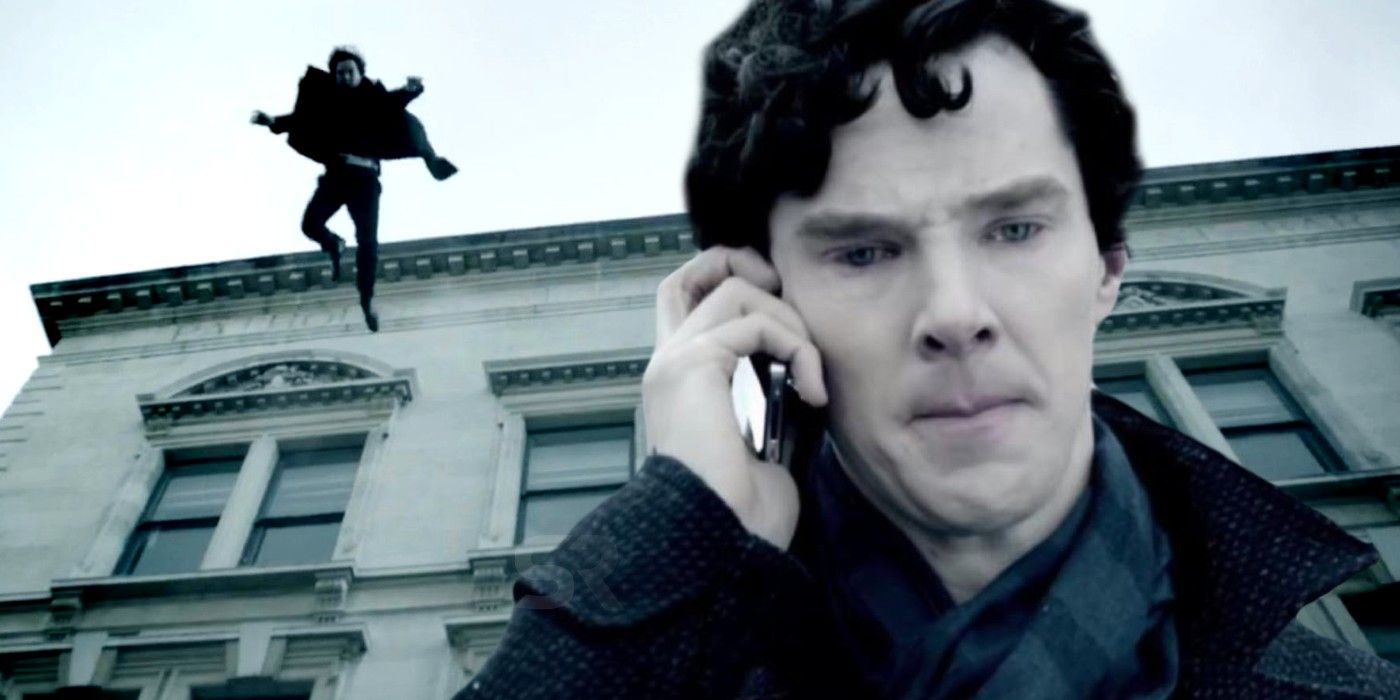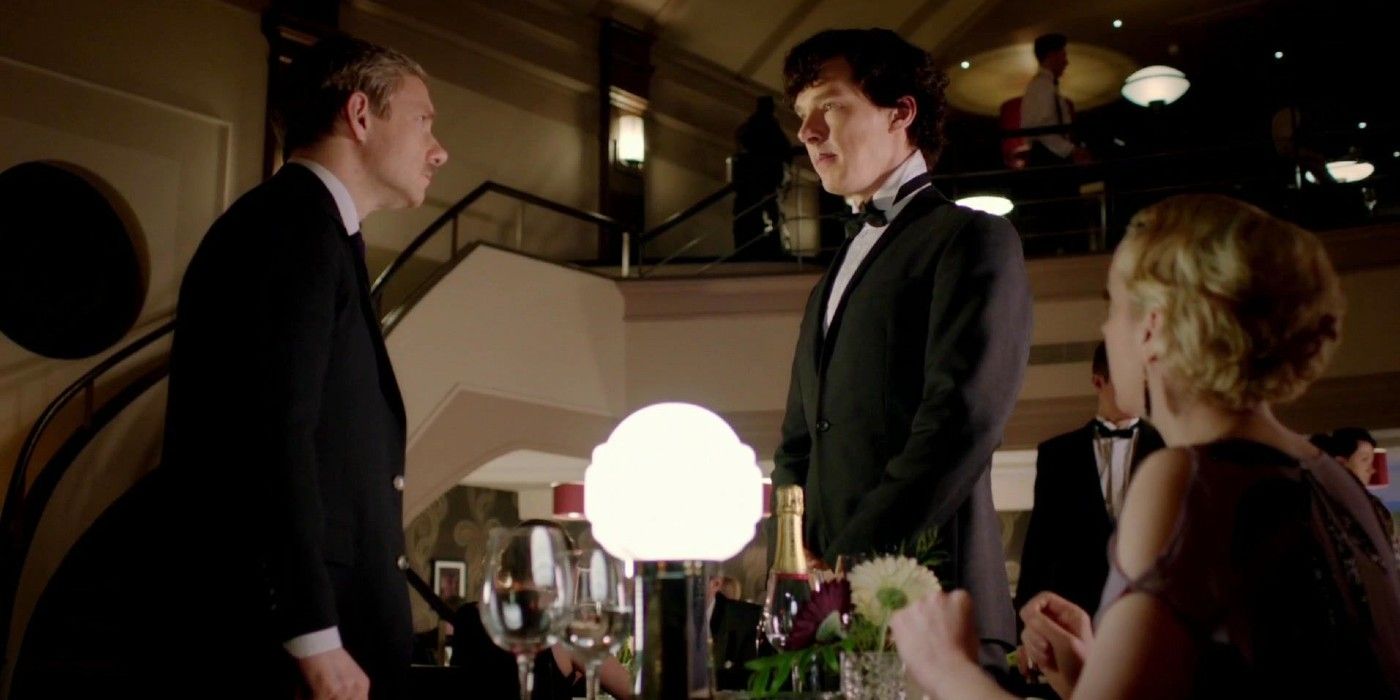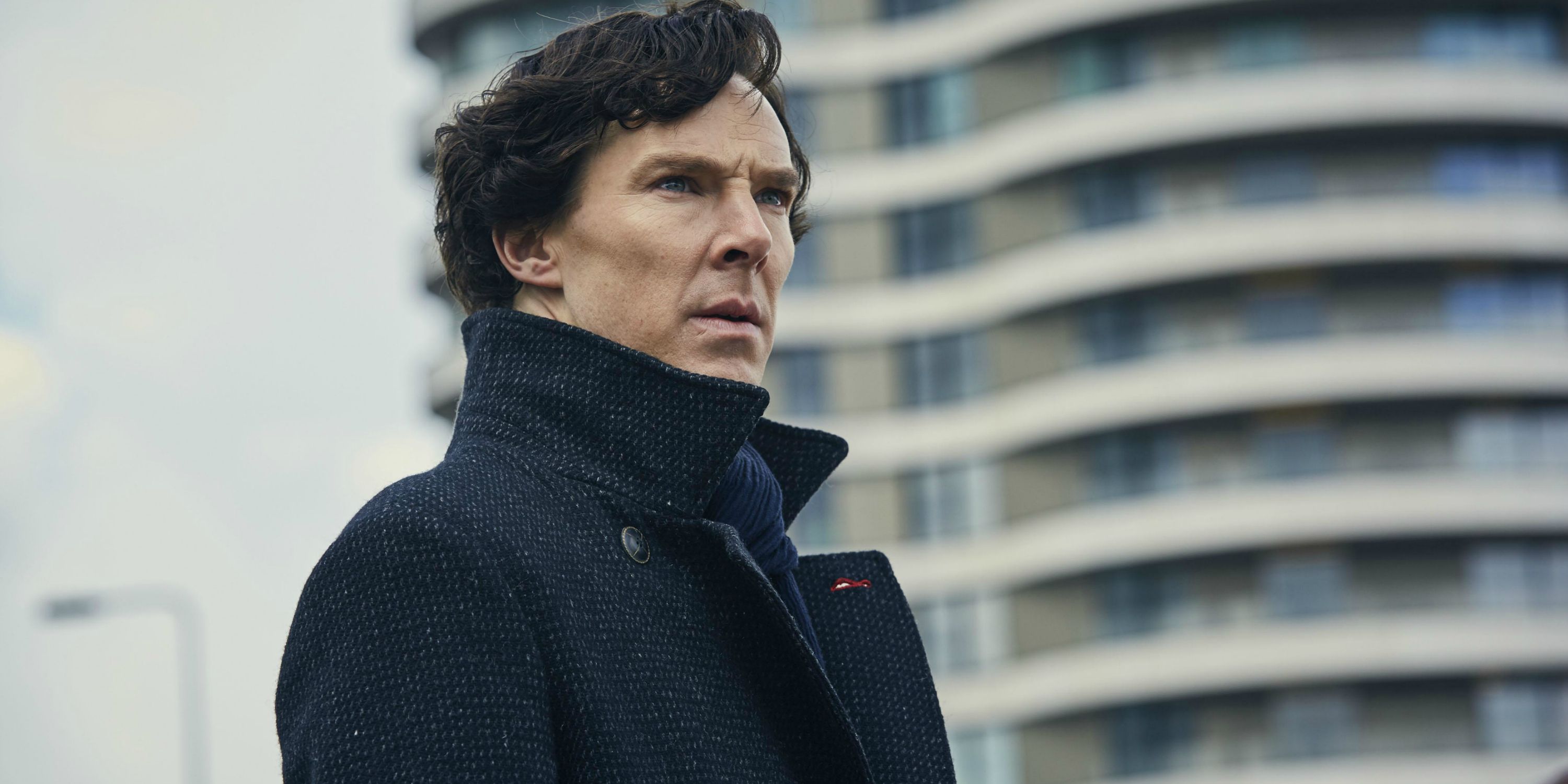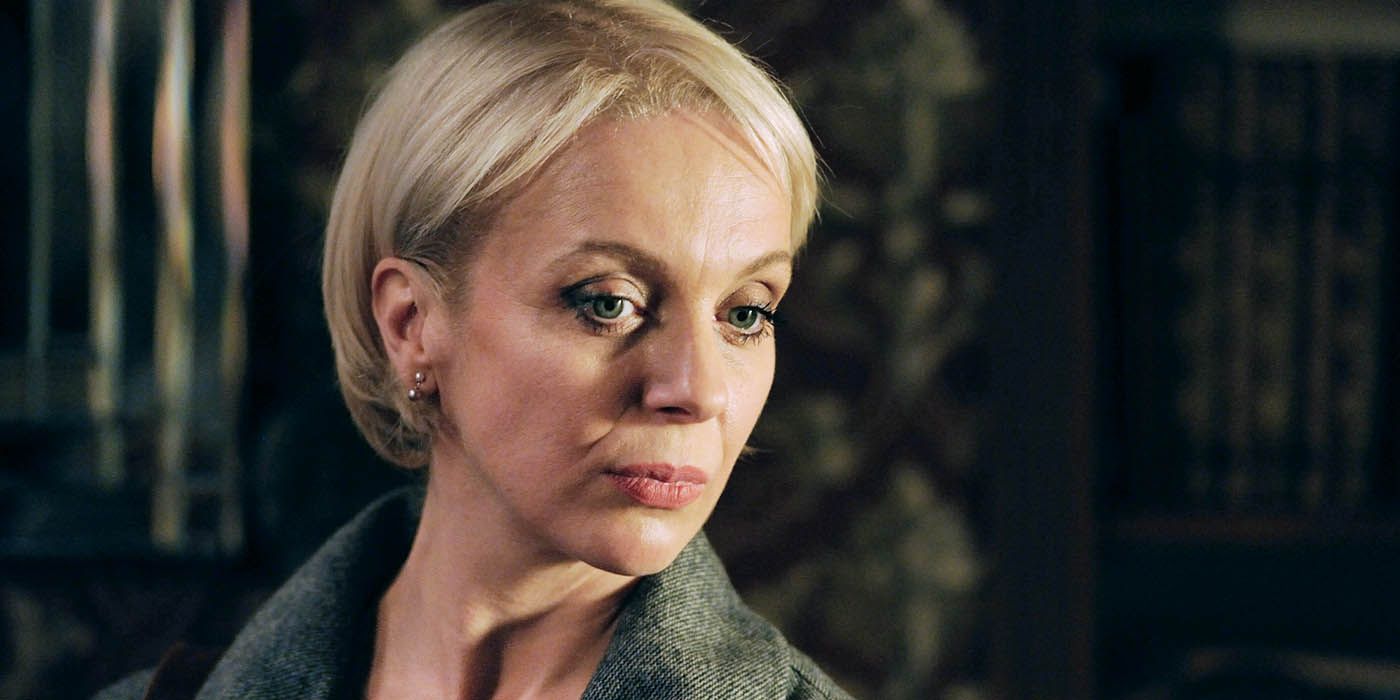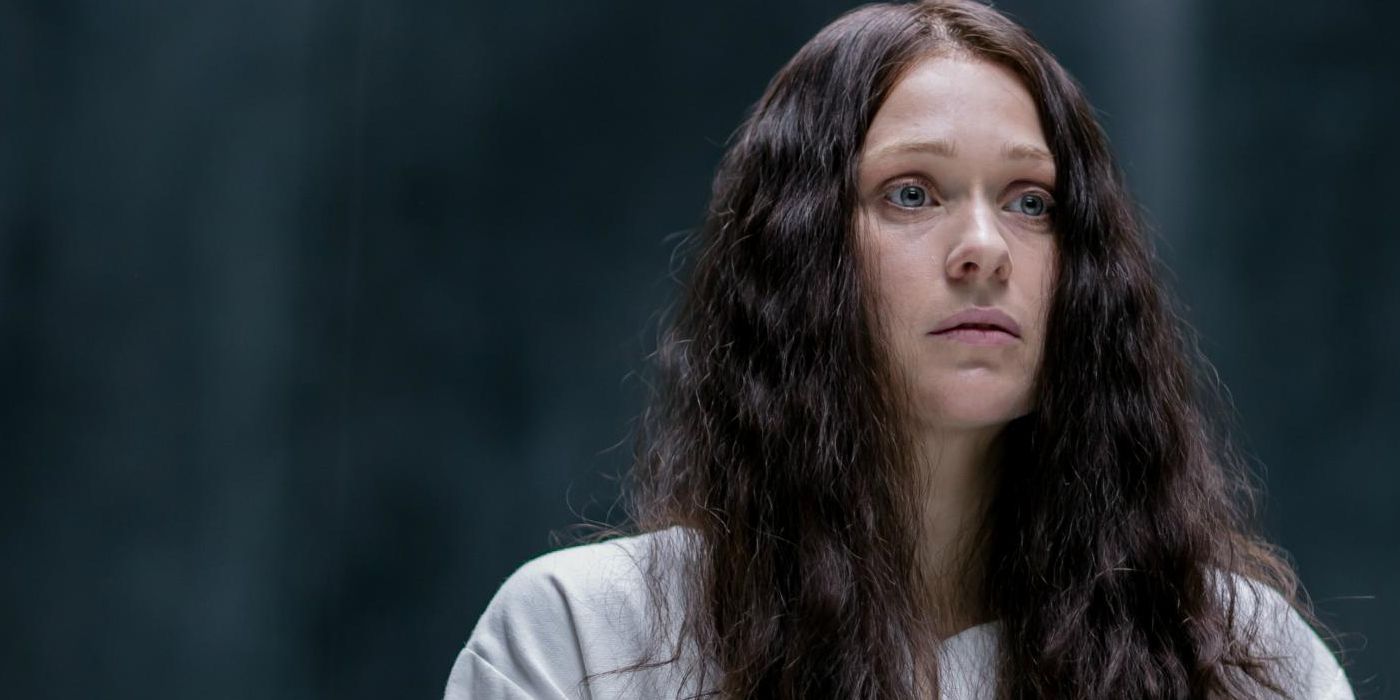The BBC’s Sherlock is one of the most popular adaptations of the famous detective Sherlock Holmes in recent years, and while the series was a success with critics and viewers, the quality decreased a lot in its final two seasons –and here’s what went wrong. Created by Sir Arthur Conan Doyle, Sherlock Holmes made his debut in the story A Study in Scarlet in 1887 and quickly became widely popular, appearing in a total of four novels and 56 short stories, and his stories have been adapted to all types of media for over a hundred years.
Among those many adaptations is the BBC’s TV series Sherlock, created by Steven Moffat and Mark Gatiss. Sherlock brought the famous detective (played by Benedict Cumberbatch) to modern-day London along with other characters from the books, such as John Watson (Martin Freeman), Jim Moriarty (Andrew Scott), and Irene Adler (Lara Pulver). The series aired from 2010 to 2017 with a total of four seasons, and while it was generally well-received by critics and viewers, its final two seasons weren’t as praised as the first two.
Sherlock stood out for its pace, narrative style, and its visual representation of Sherlock’s deduction methods, allowing the audience to follow his train of thought and solve the mysteries on their own, but those elements that made the first two seasons a success were absent in the final two, which along with some terrible decisions from the creative team earned them a lot of criticism. So, what went wrong with seasons 3 and 4 of Sherlock?
Sherlock Never Revealed How He Survived The Reichenbach Fall
Sherlock season 2 ended with a major cliffhanger as the series covered the detective’s “death”, along with that of his biggest enemy, Jim Moriarty. In the episode titled “The Reichenbach Fall”, Moriarty came up with a plan to bring Sherlock down by discrediting him and painting him as a fraud, with his final trick being pushing Sherlock to kill himself. In order to get what he wanted, Moriarty had his men ready to kill John, Mrs. Hudson (Una Stubbs), and Greg Lestrade (Rupert Graves), and the only way to save them was if Sherlock committed suicide. Much to Moriarty’s surprise, Sherlock realized there was still a way out as Moriarty could call the killings off at any moment, and so Moriarty killed himself so Sherlock wouldn’t have any other option than to jump off the roof of St. Bartholomew’s Hospital. John watched as his friend jumped to his death and even checked his pulse when he hit the floor, leaving him devastated and alone.
Just like in the books, this wasn’t the end of Sherlock Holmes and right at the end of the episode his survival was teased, and he made a full comeback in season 3. Two years passed between seasons 2 and 3 of Sherlock, so fans came up with a bunch of theories on how Sherlock survived the fall, and when it was time for the series to solve this mystery, it simply didn’t. The writers relied on some of the most popular fan theories and made them part of season 3’s premiere episode “The Empty Hearse”, which instead of feeling like the show was acknowledging the dedication of fans actually felt like it was making fun of its fanbase. To make it even worse, a proper explanation on how Sherlock survived was never given, and the one given by Sherlock to Anderson has been questioned as there are some flaws and he suddenly disappeared after sharing the answer, making fans wonder if Anderson was just dreaming. Moffat and Gatiss knew how they wanted season 2 to end and that they were going to have to explain how Sherlock survived, so they should have thought of that instead of just playing with the fans of the show and delivering an underwhelming “explanation”.
Sherlock's Tone Changed (& It Attempted More Humor)
Sherlock Holmes isn’t exactly known for being funny, though he did have some fun moments in the books with his peculiar sense of humor. The first two seasons of Sherlock got that right (though it leaned more into making the detective expressionless and even rude sometimes) and had a consistent tone, but by the time season 3 arrived, this took a turn. The writers decided to start adding more humorous moments that didn’t really fit the show and characters, such as Sherlock’s attempts to surprise John when he disguised himself as a waiter in “The Empty Hearse”. The writers tried too hard to inject some humor into the series and it showed, as those jokes and funny moments ultimately fell flat and only messed with the pace of the stories, and in most cases, they didn’t even fit with the character’s personalities, especially Sherlock’s.
Sherlock’s Deduction Skills Became Unbelievable
One of the most entertaining elements from Sherlock was how his deductions were visually represented, which as mentioned above, allowed the audience to follow Sherlock’s methods. Although Sherlock is a genius and thus his deduction skills are like no other, learning even the most strange and seemingly random stuff about a person from the smallest details, they were believable. In seasons 3 and 4, however, Sherlock’s deductions reached unbelievable levels, even predicting the exact actions of those around him from pretty much nothing and leaving no room for surprises and twists as Sherlock already knew everything – and as a result, the “twists” that did happen were quite silly and hard to believe, like Sherlock not seeing it coming that Vivian Norbury was going to shoot at him in season 4’s premiere episode “The Six Thatchers”.
Mary Watson Shouldn’t Have Been Turned Into An Assassin
Mary Morstan is Dr. Watson’s wife in the books and made her debut in the novel The Sign of the Four, where she hired Sherlock Holmes. By then, Mary made a living as a governess, and by the end of the novel, it’s revealed that Watson proposed to her and she accepted. Mary’s addition to Sherlock was expected, but the way the writers handled the character wasn’t the best. Mary was revealed to have been born Rosamund Mary, and she was an orphan turned assassin who changed her name to “Mary Elizabeth Morstan” five years before she met John so she could hide her past and start over. Her dark past came to light when Sherlock was investigating Charles Augustus Magnussen in the episode “His Last Vow”, as he was blackmailing her, and she even shot Sherlock supposedly to continue covering her real identity, but ultimately, it was all for the drama.
Mary eventually died as her past caught up with her, but her “complicated past” was completely unnecessary and further proved what fans had been criticizing about Moffat’s other projects: he doesn’t know how to write female characters. By turning Mary into an assassin, she was turned into a device to push Sherlock and John’s story forward, and her story didn’t make much sense.
Eurus Holmes Shouldn’t Have Happened
With Mary dying at the beginning of season 4, Sherlock needed another big twist to get things going – enter the third Holmes sibling who suddenly decided to appear. Eurus Holmes (Sian Brooke) is Sherlock and Mycroft’s (Gatiss) sister who had been completely absent from the show until season 4, though her existence was hinted at in season 3’s finale “His Last Vow”. Eurus had been hiding in plain sight and getting close to John, as she disguised herself as the woman in the bus with whom John cheated on Mary, John’s therapist, and Faith Smith, the daughter of Culverton Smith (Toby Jones) who visits John and Sherlock at 221B. Eurus was the main villain in the series finale, “The Final Problem”, where she came up with a truly complex and elaborate plan to torment Sherlock, Mycroft, and John, but if Sherlock’s deductions were unbelievable at this point, Eurus’ Saw-like traps went above and beyond.
Although it was said over and over again that Eurus was an even bigger genius than her famous brother, everything she did was simply hard to believe, no matter how good at manipulating people she could be. However, Eurus didn’t count on Sherlock choosing a third option when forced to kill John or Mycroft, which connects with the previous point of the twists not being surprising nor believable anymore given Sherlock’s God-like deduction skills, and if Eurus is the ultimate genius in the Holmes family, she surely should have seen that coming. Eurus’ introduction in Sherlock felt like the writers’ last resort to keep the series moving and the audience entertained, but the way Eurus was written (just like in Mary’s case, it showed a lack of understanding of female characters) along with her actions made the series finale a big mess that rightfully earned a lot of criticism.
Because of all this, Sherlock fans were left wanting more and expecting a fifth season that would make up for season 3 and 4’s mistakes and hopefully go back to the simplicity and fun of the first seasons, but as more years pass, a fifth season (or even just a reunion episode) seems more and more unlikely.

